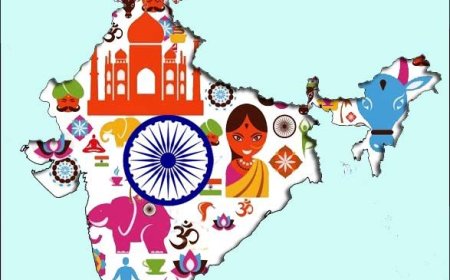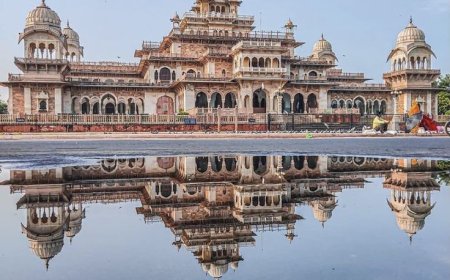The Startup Boom in India Will Continue in 2026. What is the Role of the Government Going Forward?
India’s startup ecosystem is set to thrive in 2026. Learn how government policies, funding support, and digital infrastructure will shape the next phase of entrepreneurial growth.

Have you been observing the increasing number of new apps, delivery services, and trendy online stores? The enormous wave of new and rapidly growing companies has been termed the startup boom and is taking place in India!
India has undoubtedly positioned itself as a global innovation powerhouse. In the future, the startup sector in India will continue to experience a tremendous rise in demand that will last up to 2026 and even more. Besides offering great opportunities to entrepreneurs, this process is generating millions of jobs and opening up the world to innovative solutions.
If the government does not intervene, we may miss out on the benefits of this boom. It is comparable to a farmer who must work hard to keep the soil, water, and light conditions just right for the seeds to turn into mighty trees! Let us find out the reasons why the boom will last and the actions the government must undertake next.

Boom in Indian Startups Won’t Stop: Reasons Behind It
The startup growth in India is not a chance event; it depends on a couple of solid pillars.
1. Digital Power is Everywhere
More Indians possess smartphones and enjoy the benefits of affordable high-speed internet than ever before. This is what is called the "Digital India" initiative.
A small shopkeeper can now reach buyers in all parts of the country. An adolescent programmer living in a remote place can have an application that is used by millions. This whole digital connectivity has created a vast market for Indian startups.
2. The Young and Hungry Workforce
India is home to one of the youngest populations in the world. The youth are brilliant, well-educated, and also take risks. Instead, they are going to start their own businesses rather than waiting for a regular job.
The same applies to the boom in industries like e-commerce and fintech (financial technology). Zerodha (a stock trading platform) is one of the successful startups that was founded by young entrepreneurs who had identified the need for providing simplified financial services to the masses. Thus, the vitality of the youth-led startup ecosystem in India is shown.
3. Global Attention and Money
The richest investors across the globe—from Silicon Valley to Singapore—are showering billions of dollars into the Indian startup ecosystem. They recognize the enormous potential here.
Even when the world is experiencing economic slowdowns, the news regarding Indian startups is mostly about resilience, which is a sign that investors find the long-term potential of India's big consumer market. The emergence of "Unicorns" (startups with a valuation exceeding one billion dollars) is an ongoing confirmation of this global confidence.
New Frontiers: The Rise of AI and Local Products
The previous generation of startups revolved around logistics and delivery but the upcoming one will be all about intelligent gadgets and having strong local ties.
1. AI Startups in India are the Front Runners
Artificial Intelligence (AI) is the sunset, and AI startups in India are taking the plunge towards the glow.
The solutions offered by these companies using AI are localized, like teaching in vernaculars, assisting doctors in diagnosing diseases sooner, and managing the flow of traffic in overcrowded cities.
Industry experts argue that AI would revolutionize each sector and the Indian startup ecosystem would be transformed into a more efficient and globally competitive one.
2. 'Made in India' Becomes Worldwide
The area that is going to be the biggest is local consumer goods and services.
Take Indian brands in clothing and personal care, for instance. Companies that cater to the needs of the local market with their traditional, sustainable, or uniquely Indian products are reaping great rewards, both in the domestic and international markets. They are mixing modern business concepts with India's rich culture.
The Government’s Crucial Role Going Forward
The continued boom of startups in India depends heavily on what the government does next. The role is not to run the startups, but to build a stable, easy-to-use playground for them.
Making Funding Easier for Early Ideas (Seed Stage)
A startup needs money (seed funding) when it's just a tiny idea. This is the riskiest time for any new company.
The Government’s Action: Schemes like the Startup India Seed Fund Scheme are essential. This scheme gives financial assistance to startups at the idea stage, helping them turn a blueprint into a working product.
What's Needed Next: The government needs to expand these funds and make the application process much simpler and faster, especially for startups in smaller cities.
Less Paperwork, More Freedom
Startups run fast. They hate slow bureaucracy and mountains of paperwork.
The Government’s Action: The government has made efforts to simplify processes like company registration and tax filings. They have also provided exemptions to indian startups from certain labor laws for a few years.
What's Needed Next: The government must reduce regulatory hurdles even more. For example, making it easier for startups to file patents (to protect their unique ideas) and reducing complex tax compliance rules that waste time and money.
Focusing on Deep Tech and Education
To stay ahead, especially in AI, India needs world-class research and education.
The Government’s Action: Investing in premier institutions (IITs, IISc) is a good start, but the reach must expand.
What's Needed Next: There must be a big push to fund research that specifically supports the AI startups in India. This means building high-tech labs and creating programs that help researchers turn their lab ideas into real-world business products.
Smart Policies for Smart Cities
The best innovations solve big public problems. The government is the biggest client for many solutions!
If a smart city needs a better waste management system, the government should hire a local indian startup that uses technology (like AI and sensors) to solve the problem, rather than relying on old methods. This creates a market for the startup and improves the city.

The Future: Made in India, Powered by Policy
The continued success of startups in India is not a matter of luck; it's a matter of strategy. The creativity of young founders will drive the growth, but the government's role is to ensure the highway is smooth, the rules are clear, and the fuel (funding and infrastructure) is always available.
The goal is to move from just having many startups in India to having a sustainable, long-term startup industry in India that is the best in the world. With smart policies focusing on funding, ease of doing business, and advanced technology, the boom will turn into a permanent, stable source of growth for the entire nation.
What's Your Reaction?
 Like
0
Like
0
 Dislike
0
Dislike
0
 Love
0
Love
0
 Funny
0
Funny
0
 Angry
0
Angry
0
 Sad
0
Sad
0
 Wow
0
Wow
0









































































































































































































